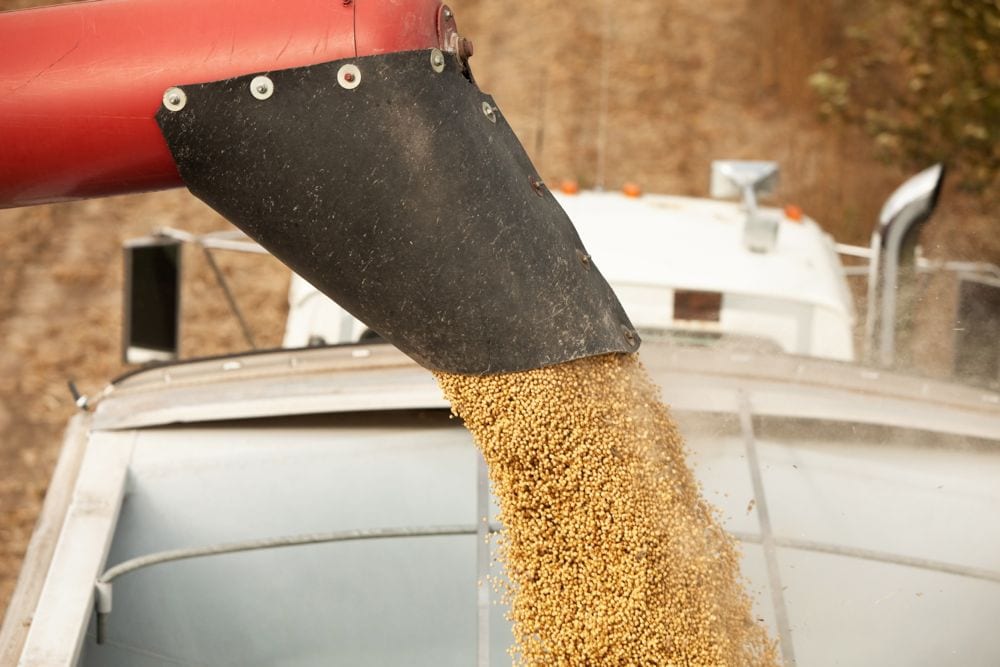CNS Canada — Although the ongoing trade war between China and the U.S. has been a good opportunity for Canada to increase its soybean exports to China, industry experts say there have been tradeoffs elsewhere.
That trade war between the world’s two largest economies is expected to continue, or perhaps flare up, as the G-20 summit in Argentina approaches. Verbal shots were lobbed between the U.S. and China this past weekend at the Asia-Pacific Economic Co-operation summit in Papua New Guinea.
Ron Davidson, executive director of Soy Canada, said U.S. soybeans are available on the market for prices lower than for Canadian soybeans.
Read Also

U.S. grains: Wheat futures rise on supply snags in top-exporter Russia
U.S. wheat futures closed higher on Thursday on concerns over the limited availability of supplies for export in Russia, analysts said.
“We could do a bit more at a high price to China, but we have intense American competition and lower prices everywhere else in the world, including Canada. The net effect of this is not positive for Canada,” he said.
“We would like that trade war to be resolved and go back to trading at a predictable, normal, commercially determined way rather than a politically determined way.”
Of the estimated 7.5 million tonnes of soybeans Canada produced in 2018, according to Statistics Canada, Davidson said between two-thirds to three-quarters will be exported to 71 countries.
China, he said, is by far the largest buyer as the country took almost 40 per cent of Canada’s soybean exports. The other top buyers of Canadian soybeans last year were the European Union, the U.S. and Japan.
Besides the U.S. soybean price being lower, Davidson said U.S. producers are receiving a subsidy of US$1.65 per bushel.
“We have nothing like that in Canada. Even though we are certainly incurring some of the downside of what’s happening in the trade war, we do not have this kind of subsidy support the Americans are getting,” he said.
Alex Kissler of London Agricultural Commodities at London, Ont, agreed with Davidson’s assessment.
“The U.S. probably has the cheapest beans in the world right now. Our bean prices increased. Other destinations are buying primarily U.S.,” Kissler said.
“Some of the European countries that would typically buy Canadian beans are probably buying U.S. because they’re that much cheaper. The same thing with other countries in Asia.”
Another industry insider, who didn’t want to be named, concurred. He said Canada’s share of the EU soybean market will likely shrink in 2018, but will likely grab greater share exporting the crop to China.
“The U.S., its price is such that every non-Chinese destination is, with a couple of exceptions, taking U.S. soybeans,” he said.
And despite Canada exporting soybeans, it also imports soybeans from the U.S. Those imports, the insider said, go primarily to crush operations in Ontario and Quebec.
As soybeans expand across Canada, another province came online in 2018. According to Statistics Canada, Alberta produced about 16,100 tonnes of soybeans. That’s pretty much on par with Nova Scotia’s soybean crop of 16,400 tonnes this year, and its production was up by 900 tonnes from 2017.
Canada’s other soybean-producing provinces are:
- Ontario, four million tonnes, up nearly 207,000 tonnes from 2017;
- Manitoba, 1.9 million tonnes, down 343,00 tonnes from 2017;
- Quebec, 1.2 million tonnes, up 112,100 tonnes from 2017;
- Saskatchewan, 298,200 tonnes, down 180,800 tonnes from 2017;
- Prince Edward Island, 38,700 tonnes, down 10,300 tonnes from 2017; and
- New Brunswick, 12,800 tonnes, down 3,400 tonnes from 2017.
Overall, Canadian soybean production is down from the 7.74 million tonnes grown in 2017, but still well ahead of the 6.6 million tonnes produced in 2016.
— Glen Hallick writes for Commodity News Service Canada, a Glacier FarmMedia company specializing in grain and commodity market reporting.




















